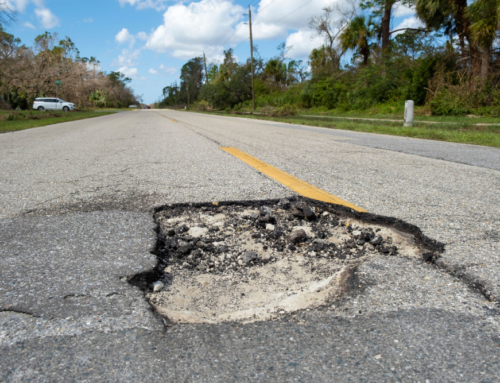Rear-end collisions are among the most common types of car accidents in Florida and across the United States. While many people assume they are straightforward when it comes to liability, the truth is that these cases can be more complex than they initially appear. Understanding how fault is determined and what your legal rights are after a rear-end accident is crucial, especially if you’ve been injured or your property has been damaged. Florida law has specific rules and nuances that can significantly impact your ability to seek compensation. In this blog, we will explore how fault is determined in rear-end collisions, the role of Florida’s no-fault insurance system, and what steps you should take to protect your rights after an accident.
Understanding Rear-End Collisions in Florida
Rear-end collisions occur when one vehicle crashes into the back of another. These accidents can happen in heavy traffic, at stop signs, at traffic lights, or even on highways when traffic suddenly slows or stops. While many rear-end accidents happen at low speeds, they can still cause significant damage to vehicles and serious injuries to occupants. Common injuries from rear-end accidents include whiplash, back injuries, head trauma, and soft tissue injuries.
Florida is a densely populated state with heavy traffic, particularly in urban areas like Orlando, Miami, and Tampa. Rear-end collisions are particularly common in stop-and-go traffic, where drivers may be distracted or follow too closely. In some cases, a driver may fail to notice a vehicle slowing down or stopping ahead of them, resulting in a sudden crash. These accidents are often assumed to be the fault of the rear driver, but determining legal liability can be more nuanced depending on the circumstances.
Determining Fault in a Rear-End Collision
In most cases, the rear driver is presumed to be at fault in a rear-end collision. This presumption is based on the idea that all drivers have a duty to maintain a safe following distance and to pay attention to the flow of traffic. If a driver crashes into the vehicle in front of them, it is usually because they were not driving with the necessary caution or were distracted. Florida courts generally uphold this presumption, but it is not absolute.
There are situations where the front driver may be partially or entirely at fault. For example, if a front driver suddenly slams on their brakes for no apparent reason, has malfunctioning brake lights, or suddenly reverses without warning, they may be found negligent. Additionally, if a vehicle is illegally stopped in a traffic lane or disabled without hazard lights, this could shift some or all of the blame away from the rear driver. Each case must be evaluated on its own merits, and a thorough investigation is needed to determine exactly what happened and who should be held responsible.
It is also important to consider whether the drivers involved were following Florida’s traffic laws at the time of the accident. Violations of traffic laws such as speeding, distracted driving, or impaired driving can play a significant role in determining fault. This is why collecting evidence, including photos, witness statements, and police reports, is critical in building a strong personal injury claim.
How Florida’s No-Fault Insurance System Affects Your Claim
Florida is a no-fault insurance state, which means that after a car accident, your own insurance coverage is the first to pay for medical expenses, regardless of who was at fault. This coverage is called personal injury protection (PIP) and is mandatory for all drivers in Florida. PIP typically covers up to $10,000 in medical expenses and lost wages. While this system is designed to streamline the process of getting medical care after an accident, it also limits your ability to file a lawsuit unless certain thresholds are met.
Your injuries must be considered “serious” under Florida law in order to step outside of Florida’s no-fault system and pursue a personal injury lawsuit against the at-fault driver. This includes significant and permanent loss of bodily function, permanent injury, significant scarring or disfigurement, or death. If your injuries meet these criteria, you may be eligible to file a claim for additional damages, including pain and suffering, future medical costs, and lost earning potential.
Working with a personal injury lawyer is critical in these cases, as proving the severity of your injuries and navigating Florida’s no-fault rules can be complex. An attorney can help gather the necessary medical evidence and documentation to support your claim, negotiate with insurance companies, and, if needed, take your case to court to fight for the compensation you deserve.
What to Do After a Rear-End Accident in Florida
Immediately after a rear-end accident, your first priority should be your safety and the safety of any passengers. Call 911 to report the accident and request medical assistance if anyone is injured. Even if you feel fine, it’s important to get evaluated by a medical professional, as some injuries, like whiplash or concussions, may not show symptoms right away. Document the scene by taking photos of vehicle damage, road conditions, traffic signs, and any visible injuries.
You should also exchange information with the other driver, including names, contact details, insurance information, and vehicle registration. Avoid discussing fault or making statements that could be used against you later. If there are any witnesses, try to get their contact information as well, as their testimony could be valuable in supporting your claim.
After leaving the scene, report the accident to your insurance company and follow up with your healthcare provider. Keep a detailed record of all medical treatments, expenses, time missed from work, and any pain or limitations you experience. Finally, contact an experienced personal injury attorney as soon as possible. They can help you understand your rights, determine whether you have a valid claim, and guide you through the legal process.
How an Attorney Can Help You Recover Damages
Proving liability and securing fair compensation in a rear-end collision case often requires a deep understanding of Florida’s traffic laws, insurance regulations, and legal procedures. An experienced personal injury attorney can investigate the accident, gather evidence, and build a compelling case on your behalf. They will work with accident reconstruction experts, review medical records, and consult with specialists to establish the full extent of your injuries.
An attorney can also handle all communication with the insurance companies involved. Insurance adjusters often try to minimize payouts by questioning the severity of your injuries or shifting blame. Your lawyer will protect your rights and negotiate aggressively to ensure you receive the compensation you’re entitled to. If a fair settlement cannot be reached, your attorney can file a lawsuit and represent you in court.
Compensation in rear-end collision cases may include medical bills, future medical expenses, lost wages, loss of earning capacity, pain and suffering, emotional distress, and more. Your lawyer will ensure that every aspect of your injury and its impact on your life is accounted for when calculating damages. With legal guidance, you can focus on your recovery while your attorney fights for the justice you deserve.
Conclusion: Know Your Rights and Act Quickly
Rear-end collisions are more than just minor fender-benders—they can lead to serious injuries, long-term health complications, and significant financial stress. While fault is often presumed in these types of accidents, the reality is that liability can be complex and requires a detailed investigation. Understanding Florida’s no-fault insurance rules and knowing when you can step outside of them is essential to protecting your legal rights and obtaining fair compensation.
If you’ve been involved in a rear-end accident in Florida, you don’t have to go through it alone. The legal team at Payas, Payas, and Payas is here to help you every step of the way. We have extensive experience handling rear-end collision cases and know how to get results for our clients. Contact us today for a free consultation. We’ll evaluate your case, explain your legal options, and fight to ensure you get the compensation you deserve. Don’t wait—take action today to protect your future.
FAQs
- Is the rear driver always at fault in a rear-end collision in Florida?
While the rear driver is typically presumed to be at fault, this is not always the case. If the front driver suddenly stopped without warning, had faulty brake lights, or was illegally stopped, they may share some or all of the blame. Each case must be evaluated based on the facts. - Can I sue the other driver in a rear-end accident if I have PIP insurance?
Yes, but only if your injuries meet Florida’s threshold for serious injury. If your injuries are permanent or significantly impair your bodily function, you may be eligible to file a personal injury lawsuit outside of the no-fault system to seek additional compensation. - How long do I have to file a claim after a rear-end accident in Florida?
In Florida, the statute of limitations for filing a personal injury lawsuit is generally two years from the date of the accident (as of the 2023 legislative update). However, the sooner you take legal action, the better your chances of building a strong case and preserving important evidence.








